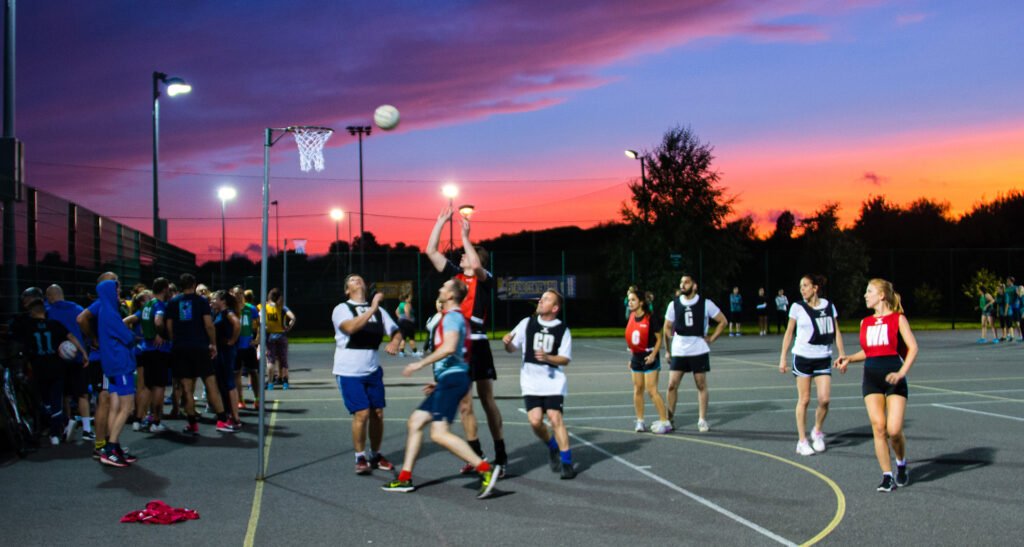Beyond the Field: Exploring the Impact of Sports in Society
Whether it is a passion for one, a love for many, or an indifference for most, sports plays a significant role today. With events such as the Olympic Games, Paralympic Games, European Championships, and the Men’s and Women’s T20 World Cup, 2024 has been a remarkable year for a wide range of sports. This resource explores the impact of sport on various aspects of modern society, with a particular emphasis on less frequent events such as the Olympic Games.
The impact of sports in society extends far beyond the boundaries of the playing field. Sports have a unique ability to unite people from diverse backgrounds, inspire individuals, and drive social change. Whether at the local, national, or global level, the influence of sports permeates various facets of life, promoting physical health, fostering community spirit, and encouraging social and cultural development. This article delves into the multifaceted role of sports in society, highlighting its significance and the profound changes it brings about.
1. Promoting Physical Health and Well-being
One of the most obvious impacts of sports in society is the promotion of physical health and well-being. Participation in sports encourages individuals to maintain an active lifestyle, which is essential for preventing a range of health issues, such as obesity, cardiovascular diseases, and diabetes. Regular physical activity strengthens the body, improves mental health, and enhances overall quality of life. By engaging in sports, individuals can develop discipline, resilience, and a sense of accomplishment, all of which contribute to their overall well-being.
Moreover, sports provide a platform for educating people about the importance of health and fitness. Public health campaigns often leverage the popularity of sports figures to disseminate messages about healthy living. For instance, professional athletes frequently participate in initiatives aimed at encouraging young people to stay active and make healthier lifestyle choices. The impact of sports in society is evident in how it shapes public attitudes towards health and fitness, creating a more health-conscious populace.
2. Fostering Social Cohesion and Community Spirit
Sports have a remarkable capacity to bring people together, transcending social, economic, and cultural barriers. The sense of unity and camaraderie that sports foster can strengthen communities and promote social cohesion. Sporting events, whether local matches or international tournaments, serve as communal gatherings where people from all walks of life come together to celebrate, support their teams, and share the excitement of the game.
Local sports clubs and teams play a pivotal role in fostering community spirit. They provide a space where individuals can connect, build relationships, and work towards common goals. These interactions help create a sense of belonging and identity, especially in areas where social fragmentation is prevalent. Through sports, individuals learn values such as teamwork, cooperation, and respect for others, which are essential for harmonious community life.
On a larger scale, international sporting events like the Olympics and the FIFA World Cup exemplify the unifying power of sports. These events capture the attention of millions worldwide, fostering a sense of global solidarity. The impact of sports in society is seen in how these events promote cross-cultural understanding and friendship, breaking down prejudices and fostering a more inclusive world.
3. Driving Social and Cultural Development
The influence of sports on society extends into the realms of social and cultural development. Sports have historically been a catalyst for social change, challenging societal norms and advocating equality and justice. The Civil Rights Movement in the United States, for example, saw athletes like Jackie Robinson and Muhammad Ali use their platforms to fight against racial discrimination and injustice. Their actions not only brought attention to critical issues but also inspired generations to stand up for their rights and demand change.
In recent times, sports have continued to be a powerful tool for advocating social causes. Movements like Black Lives Matter have seen significant support from athletes who use their visibility to raise awareness and drive conversations about racial equality. Similarly, initiatives promoting gender equality in sports have gained momentum, with female athletes advocating for equal pay and opportunities in traditionally male-dominated sports.
Culturally, sports contribute to the preservation and celebration of traditions and heritage. Traditional sports and games are integral parts of cultural identity for many communities. By promoting and participating in these activities, societies can keep their cultural heritage alive and pass it on to future generations. Additionally, the global popularity of certain sports, such as soccer and basketball, facilitates cultural exchange, allowing people to learn about and appreciate different cultures through their shared love of the game.
4. Economic Impact and Opportunities
The economic impact of sports on society is substantial. The sports industry generates billions of dollars in revenue each year, creating jobs and stimulating economic growth. From stadium construction and sports equipment manufacturing to media rights and sponsorship deals, the economic footprint of sports is vast and varied. Hosting major sporting events can provide significant economic benefits to host cities and countries, boosting tourism, infrastructure development, and local businesses.
Furthermore, sports offer numerous opportunities for individuals to build careers, whether as athletes, coaches, sports journalists, or in sports management. These careers not only provide financial stability but also inspire others to pursue their passions and strive for excellence. The impact of sports on society is thus seen in the creation of economic opportunities and the fostering of aspirations and dreams.
5. Sports and Politics
The data shows that throughout the past century, the countries with the most Olympic medals have remained stable. The US has finished in the top two at every Summer Olympics, except for two, one of which was caused by the US boycott.
Medal numbers are a subtle indicator of the effect of “soft” economic power. Countries that can afford to buy specialized coaches, training facilities, and medical equipment typically win the most medals. In a similar vein, most of the Games have been held in wealthy countries throughout the previous century, primarily because of the bidding process that ensured the country that provided the financing could host the Games.
Conclusion
The impact of sports on society is profound and far-reaching. Beyond the physical benefits of staying active, sports foster social cohesion, drive social and cultural development and contribute significantly to economic growth. By uniting people, challenging societal norms, and creating opportunities, sports play an indispensable role in shaping the world we live in. As society continues to evolve, the influence of sports will undoubtedly remain a powerful force for positive change, bringing people together and inspiring future generations.










